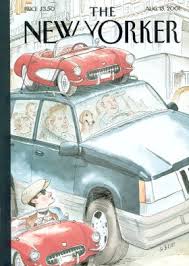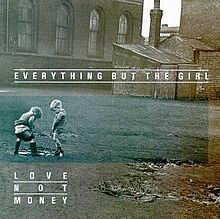 SOUNDTRACK: THE RAILWAY CHILDREN-“Brighter” (1987).
SOUNDTRACK: THE RAILWAY CHILDREN-“Brighter” (1987).
 In Stuart David’s book, In The All-Night Café, he lists the songs on a mixtape that Stuart Murdoch gave to him when they first met.
In Stuart David’s book, In The All-Night Café, he lists the songs on a mixtape that Stuart Murdoch gave to him when they first met.
Although I’ve been a fan of Belle & Sebastian for a long time, I knew almost none of the songs on this mixtape. So, much like Stuart David, I’m listening to them for the first time trying to see how they inspire Stuart Murdoch.
In the book, David writes how much he does not like “rock,” especially music based around bluesy rock. Most of these songs, accordingly, do not do that. In fact, most of these songs are (unsurprisingly) soft and delicate.
A looping almost marimba-like sound opens before a jangly guitar and steady bass. Here’s another song where the main instrument is the bass with guitar flourishes added on top. This band reminds me of The Church (who had put outa couple of albums by now).
Singer Gary Newby has a nice crooning voice and the chorus is quite catchy. The instrumental break allows the guitar to shine a bit with a meandering solo. But the biggest surprise comes about 4 minutes in when there’s a drum solo of sorts–played on something like a metallic bongo. After all of the short songs, this one pushes five minutes and is something of a surprise.
There’s some other good stuff on Reunion Wilderness, like “Gentle Sound” which I thought was a bit catchier.
[READ: January 30, 2021] “A Poor-Aunt Story”
In this story Murakami discusses a poor-aunt. I don’t know of this is a universal idea as I’ve never heard it before, although I do get where he’s coming from.
He says it was a beautiful day and he was out enjoying it when he suddenly had the idea of a poor aunt. There wasn’t even a poor aunt around, the idea just came to him and it stuck. He needed to write a story about a poor aunt.
He told his friend he wanted to write a poor aunt story. She asked if he had a poor aunt. He said no. She said she did have a poor aunt bit didn’t want to write about her.
He admits that chances are “you don’t have a poor aunt relative, but you have seen one.”
Every wedding reception has a poor aunt.
No one bothers to introduce her. No one talks to her. No one asks her to give a speech. She just sits at the table like an empty milk bottle.
When people look at the photo album they ask about her and the groom says she’s no one, just a poor aunt of mine.
He woke up the next day and a found that a poor aunt–a little one–was stuck to his back.
Nothing alerted him to her presence, he just felt it. She wasn’t heavy and didnt breathe across his shoulder. People had to look hard to see she was there. But people did see her–she gives me the creeps, a friend said. He said it felt like his mother was watching them.
The narrator was unable to see the poor aunt but other people cuid and they all saw her as something else–usually something unfortunate–a friend’s dog who had died. Soon enough friends stopped calling him–they found it depressing. But the media swooped in on him. He even made it on the show “Look What Else Is Out There.” He tried to explain what had happened but the show tried to sensationalize him–looking for a horror story or a joke.
One of his friends said she wished it had been an umbrella stand on his back–that would be more pleasant to look at and more practical. He could even have painted it different colors.
The poor aunt left him in autumn. He was on a train ride and watched as a mother tried to deal with her squabbling children. The boy was teasing his sister–stealing her hat. She was getting very upset and complaining to her mother. The mother was trying to read and was getting angry at the daughter for bothering her. Finally the girl reached across the seat and slapped the boy’s face and took her hat, feeling very pleased with herself.
The mother was furious and made the girl sit in a different aisle–next to the narrator. The child protested but the mother said “You’re not part of this family anymore.” He wanted to say something to the girl, to cheer her up. Like that she had done a good job, but he knew it would only confuse and frighten her so he said nothing.
Sometime during that interaction, the poor aunt left him. He wasn’t aware of it, she was just gone.
This was one of Murakami’s first experiments with the short story form. It was translated by Jay Rubin.
















